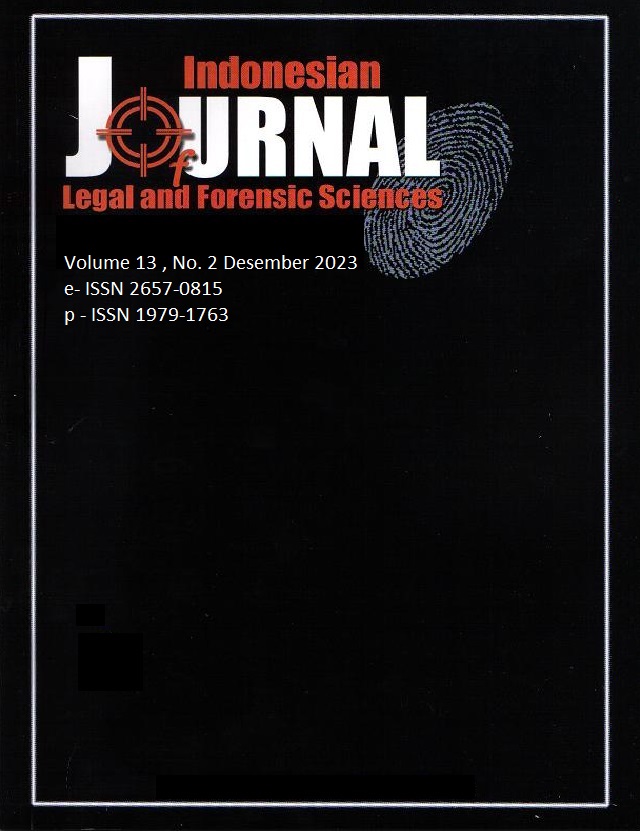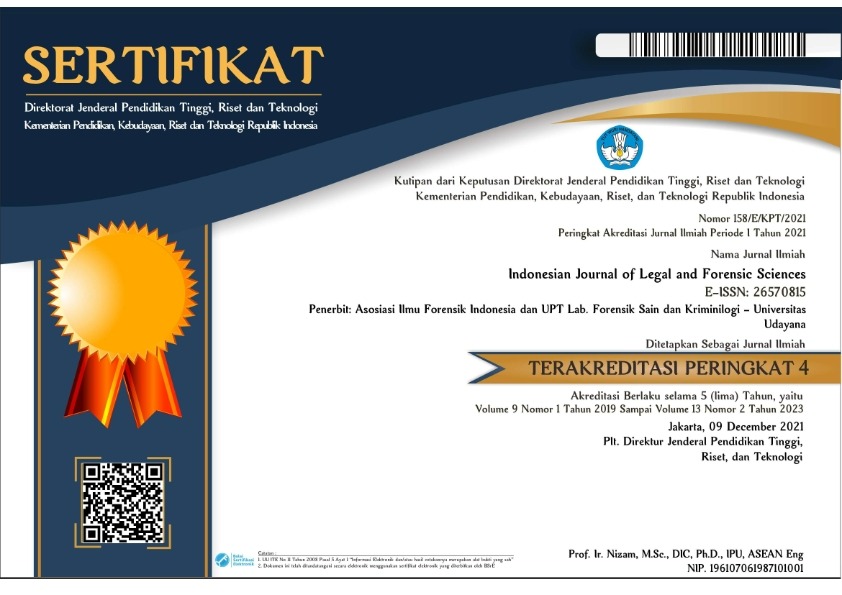Desain Mini Primer STR Lokus TH01 dan D21S11 untuk Amplifikasi DNA Darah Terpapar Suhu Tinggi
Abstract
DNA identification has an important role in forensics to investigate a case. However, the problem that is often encountered is that the DNA found is difficult to analyze because the amount is relatively small and degraded. An alternative used in DNA examination is to design mini primers for amplification. Mini primers can produce DNA profiles even in samples that have very low quantity and quality. Therefore, this study aims to determine the effectiveness of mini primers for amplification of TH01 and D21S11 loci in DNA exposed to high temperatures. In addition, to determine the effect of high temperature exposure on DNA quality and quantity. The samples used were 3 ml of human blood treated with 100, 150, and 200ºC for 10, 20, and 30 minutes. The method used was PCR amplification using mini primers TH01 and D21S11 loci. Quantity data were analyzed by a parametric test using the Two Way Anova method. Meanwhile, DNA quality was tested by agarose gel electrophoresis. The results showed that temperature treatment affected the quantity and quality of DNA. The TH01 locus in DNA samples treated with high temperature can be amplified using primer pairs MP1FTH01 and MP1RTH01. At the D21S11 locus, the use of primers 1 and 2 can be combined to identify DNA samples with high temperature treatment



















